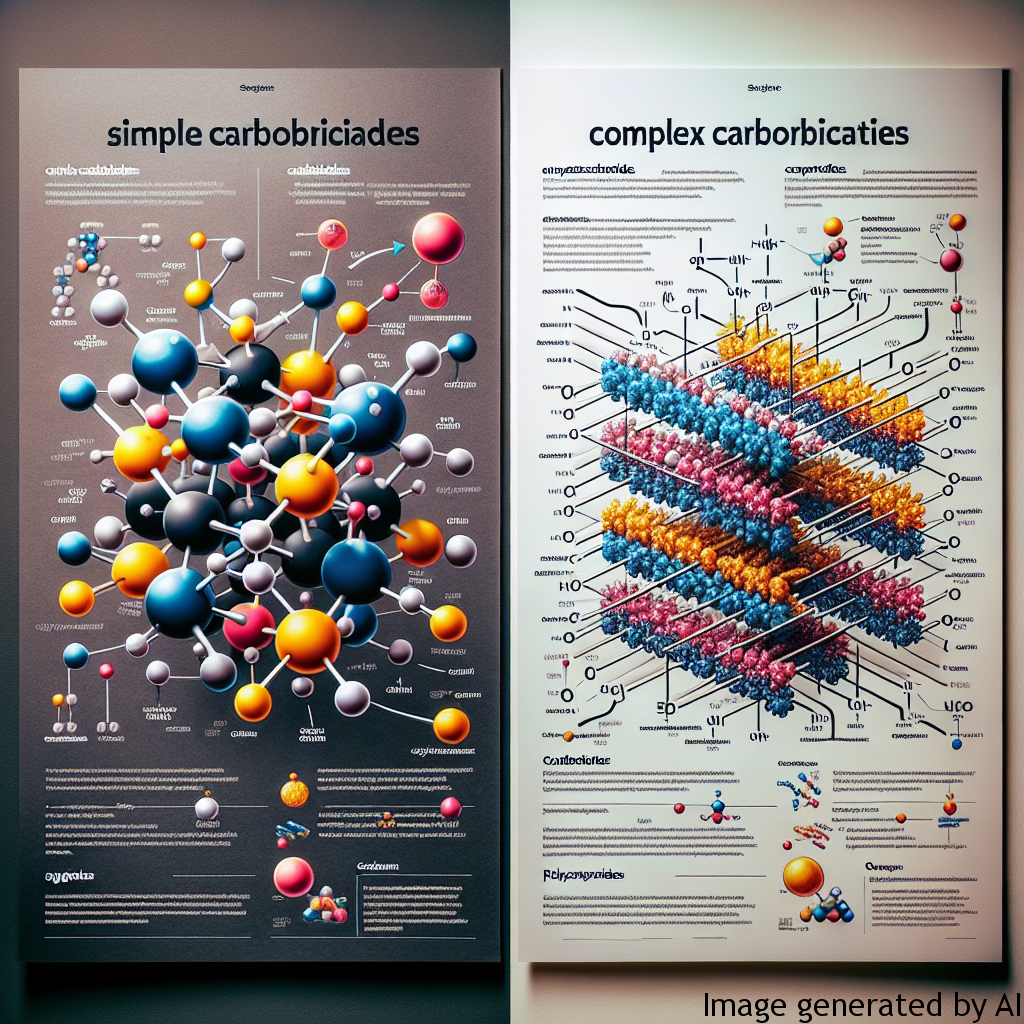Introduction
Carbohydrates are an essential part of every diet. They provide the primary source of energy for the body and are broadly classified into two categories; simple and complex carbohydrates. Simple carbohydrates are small, quick to digest molecules that provide an immediate burst of energy. On the other hand, complex carbohydrates are larger molecules that are digested more slowly, providing a steady, long-lasting supply of energy. This article aims to shed light on these two major types of carbohydrates, their effects on our bodies, and their roles in our diets.
Simple Carbohydrates
Simple carbohydrates, also referred to as simple sugars, consist of short chains of molecules and require minimal breakdown before they are absorbed into the bloodstream. Because of this quick absorption, they provide a rapid spike of energy. Simple sugars can be naturally occurring, such as those found in fruits and milk, or they can be added to foods, like in candies, soda, and baked goods.
Effects on the Body
While simple carbohydrates can provide an immediate energy boost, they also lead to quick highs and lows in blood sugar levels, which can result in a “crash” effect. This rapid change in blood sugar can leave the body feeling fatigued and hungry for more carbs. Moreover, the overconsumption of simple sugars, especially those added to foods, is linked to weight gain, diabetes, heart disease, and other health issues.
Complex Carbohydrates
On the other hand, complex carbohydrates or polysaccharides consist of longer chains of sugar molecules. These complex carbs include foods like whole grains, potatoes, and legumes, which require more processing in the body before they can be used for energy. As a result, they offer a more sustained and steady release of energy.
Effects on the Body
Because they are processed and absorbed more slowly, complex carbohydrates do not cause the same sharp spikes and dips in blood sugar that simple carbs do. This slow release ensures a more consistent energy level throughout the day and can help regulate appetite and weight. Complex carbohydrates also tend to be higher in fiber, which aids digestion, and other valuable nutrients.
Making Healthy Choices
While both types of carbohydrates have their place in the diet, it is generally healthier to lean towards complex carbs. They not only provide a more stable energy source but also often come loaded with other nutrients. Simple carbs, particularly those with added sugars, should be consumed in smaller amounts. Making mindful choices about the types of carbs you consume can have a significant impact on your overall health.
Conclusion
In conclusion, understanding the difference between simple and complex carbohydrates is essential for maintaining a balanced diet. While both are necessary for our bodies, each offers distinct benefits and drawbacks. By making mindful food choices and leaning towards complex carbs, you can better regulate your energy levels, control your weight, and promote overall health.

